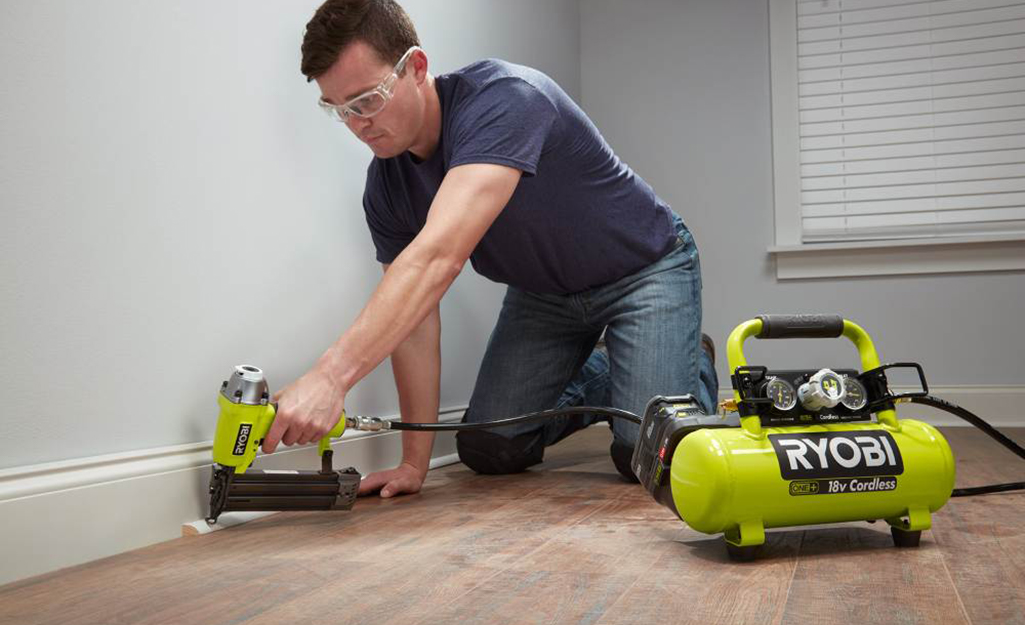A garage’s air compressor is a crucial instrument for powering numerous pneumatic tools and enhancing the effectiveness of do-it-yourself operations. Although air compressors have many advantages, it’s crucial to put safety first when operating them. Due to the compressed air’s high pressure and potential hazards, safety precautions must be carefully followed. In order to create a secure and effective workspace, we’ll examine the dos and don’ts of employing air compressors in your garage in this post.
Dos:
1. Read the handbook: Carefully read the manufacturer’s given user handbook before using any air compressor. You will gain a thorough understanding of the tool’s functionality, safety considerations, and recommended use as a result.
2. Wear protective gear: A person’s safety should always come first. Wear the proper safety equipment, such as gloves, hearing protection, and safety glasses, when using an air compressor. You will be shielded from potential dangers like flying debris and loud noises by doing this.
3. Examine the Equipment: Before each usage, check the hoses, attachments, and air compressor for any signs of wear or damage. Make sure that every component is functional and free of leaks.
4. Use the Correct Tools: Only utilize pneumatic tools and accessories that adhere to the requirements of your air compressor. Equipment failure and accidents may result from the use of tools that are not made for the pressure of the compressor.
5. Verify Pressure Ratings: Recognize the optimum pressure ranges for the tools and equipment you’re utilizing. Excessive pressure applied to tools can harm them and pose a risk to user safety.
6. Store Hoses Correctly: When not in use, arrange and neatly store air hoses and wires. This reduces hose wear and strain and eliminates trip hazards.
7. Secure Workpieces: Make sure the workpiece is firmly fastened or secured in place when utilizing pneumatic equipment. This eliminates movement while in use and lowers the possibility of mishaps.
8. Make Use of Regulators: Many air compressors come with pressure regulators that let you change the air pressure to meet the needs of the tool. To make sure the pressure is within the acceptable working range, use regulators.
9. Maintain a Safe Distance: Keep your distance from the working tools and the air compressor. This lessens the possibility of unintentionally being struck by equipment or things propelled by compressed air.
10. Ventilate the Area: Compressed air, particularly if the compressor is running for an extended period of time, can produce heat and exhaust fumes. To avoid heat and fumes building up in your garage, make sure it has adequate ventilation.
Don’ts:
1. Exceed Pressure limitations: When using an air compressor, never go beyond the manufacturer’s recommended maximum pressure limitations. Overpressurizing the system might result in dangerous conditions and equipment failure.
2. Leave Tools Unattended: Refrain from leaving pneumatic tools linked to the air compressor unattended. A tool’s malfunction or leakage may result in damage and even harm.
3. Don’t Block Ventilation: Keep the ventilation holes on the air compressor clear. To avoid overheating and for secure functioning, enough ventilation is required.
4. Use Worn or Damaged Hoses: Do not use any air hoses that have visible wear, damage, or cracks. Damaged hoses may rupture under pressure, posing a significant risk to safety.
5. Remove Safety Devices: Pressure relief valves and other safety features are frequently included with air compressors. These devices are there to avoid overpressure situations, therefore do not remove them or tamper with them.
6. Direct Compressed Air Towards People: Avoid directing compressed air at anybody or anything, including pets. When directed towards delicate areas like the eyes and skin, high-pressure air can seriously hurt people.
7. Overload Electrical Circuits: Exercise caution when using numerous high-power tools at once so as not to overload electrical circuits. This may result in equipment damage, power outages, and fire risks.
8. Ignore Strange Noises: Turn off the air compressor right away and look into the problem if you notice strange noises or vibrations coming from it. Further harm may result if a broken compressor is kept running.
9. Never Use Compressed Air to Clean Your Skin or Clothes. Never use compressed air to clean your skin or clothes. The high pressure can harm the skin, resulting in bruises, embolisms, and even bruising.
10. Making Repairs Without Knowledge: If you don’t have the requisite skills and knowledge, don’t try to fix or modify the air compressor or any of its parts. Repairs done incorrectly risk compromising functionality and safety.
An air compressor is a strong equipment that can significantly improve your garage efforts, to sum up. However, there are several dos and don’ts that must be followed in order to use it securely. Follow the manufacturer’s instructions, wear the appropriate safety gear, and use the appropriate tools for the job in order to prioritize your safety and the protection of those around you. You may take use of an air compressor’s advantages while reducing the risks involved with using high-pressure tools by including these safety precautions into your daily garage routine.
